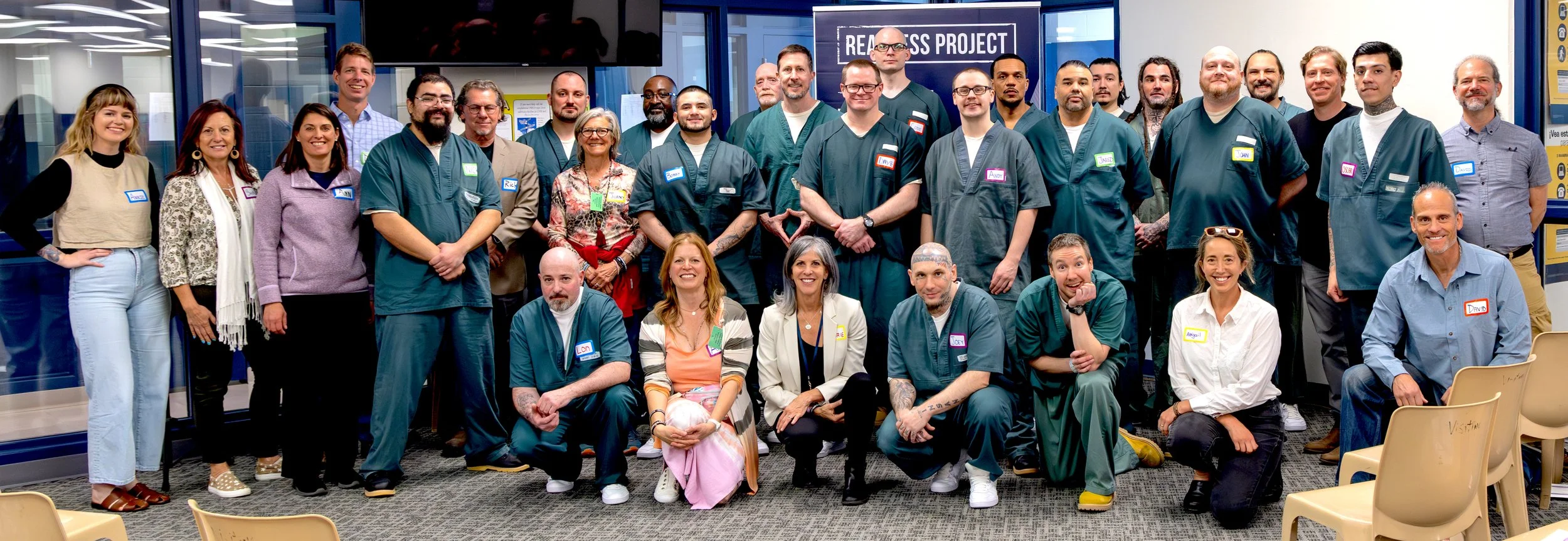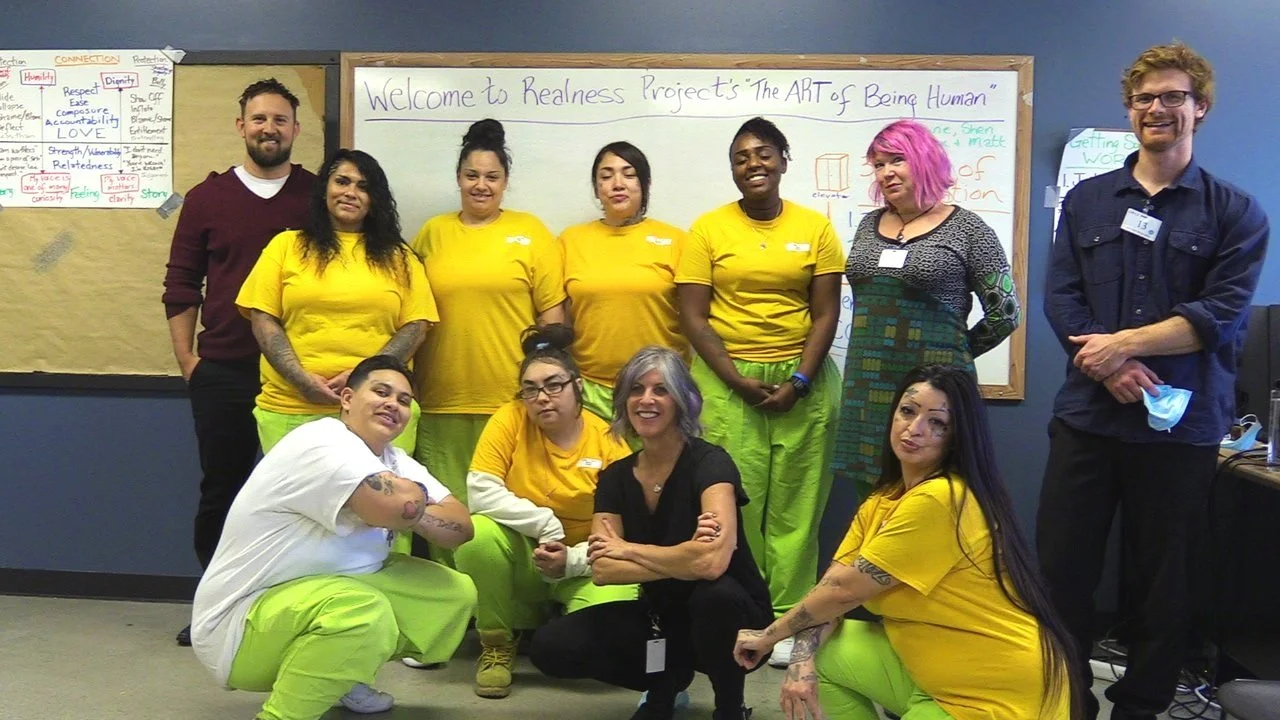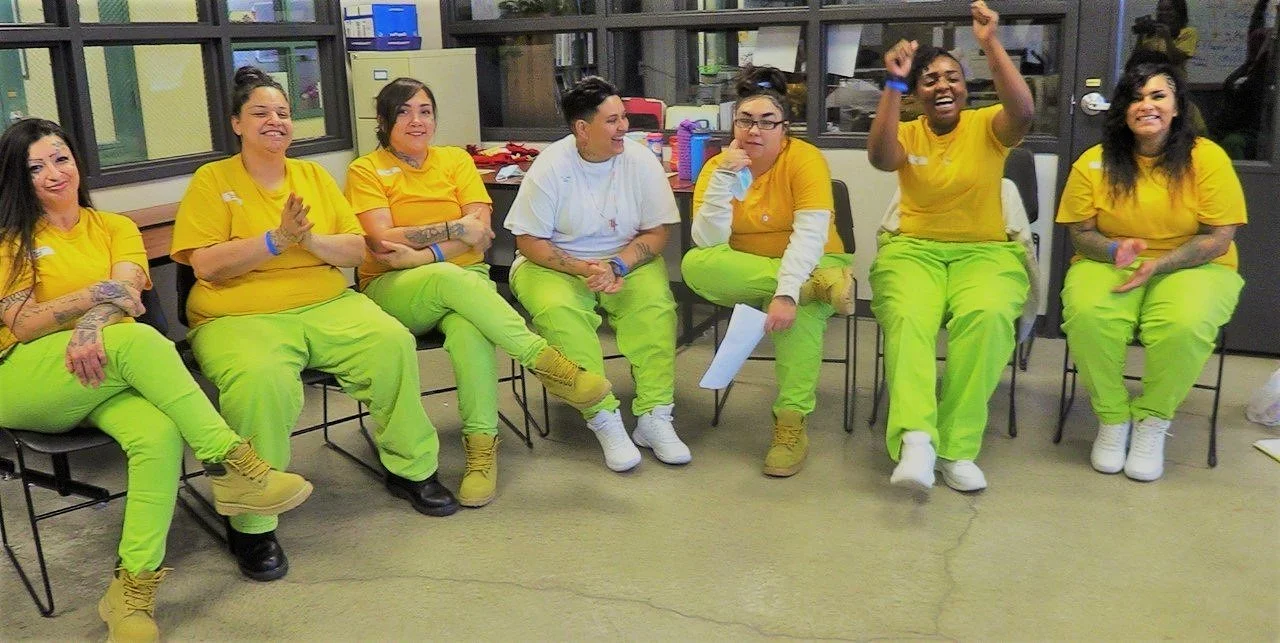
The ART of Being Human Workshop
A 2-Day Intensive Program
Our highly experiential flagship workshop provides participants with powerful and lasting communication skills to connect with family, friends, employers, community, and the world in more meaningful, empowering prosocial ways.
Our work’s foundation is Authentic Relating (AR), a robust set of communication practices designed to cultivate trust, understanding, curiosity, cooperation, and empathy. Building on a variety of credentialed humanistic disciplines, AR is one of the most impactful human connection innovations of our time that is being used globally.
Through AR, participants move beyond conditioned relational habits and learn to relate from a place of more revealed, genuine, personal self-expression while also receiving others in their authentic expression.
Realness Project's programs allow people living behind bars to relate with one another in a highly experiential and enjoyable way. Participants will leave enlivened and empowered to employ new skills in their lives immediately.
Relational Leadership Training (RLT)
Relational Leadership Training (RLT) is a rigorous 3-month program designed to awaken curiosity, dignity, empathy, and increased self- awareness.
Through experiential learning, participants practice new ways of communicating that empower healthier, more inspiring, more trustworthy relationships, as well as ways to handle conflict without verbal or physical violence.
What is Relational Leadership?
Relational leadership is a way of being in the world that prioritizes deep connections, empathy, and honoring oneself as well as others.
Its foundation hinges on developing self-awareness, enabling individuals to navigate wide-ranging emotions and experiences with empathy and resilience, as well as to communicate effectively, building trust within themselves and others.
What impact does Relational Leadership have on prison communities?
Research underscores the profound impact of relational approaches on addiction recovery, mental health, and trauma healing.
Fostering relational skills, such as emotional expression and empathy, can significantly enhance individuals' abilities to manage stress, regulate emotions, and maintain sobriety.
By guiding participants to explore their feelings, needs, and desires within the context of supportive relationships, Realness Project's curriculum aligns with these findings, offering a pathway towards holistic wellness and long-term recovery.
What are the healing effects of Relational Leadership?
The relational nature of the courses, with opportunities for engagement in pairs, small groups, and large group settings, fosters a sense of community and belonging—a protective factor against the negative effects of trauma and addiction.
By fostering connections and promoting mutual understanding among participants, the Realness Project's approach cultivates a supportive environment conducive to healing and growth.
What are some of the mental health outcomes of Relational Leadership for people in prison?
A reduction in symptoms such as anxiety, depression, or mood instability.
Enhanced coping mechanisms and resiliency, leading to better management of stressors and triggers, and increased capacity to be with uncomfortable states and experiences.
Increased self-awareness and emotional regulation skills, fostering a greater sense of control over their mental well-being.
A greater sense of hope or optimism, serving as a powerful motivator to initiate and sustain positive changes in their lives, possibly fuel determination to overcome challenges, engage in treatment, and adopt healthier coping strategies.
Increased self-reflection, allowing for identifying and challenging maladaptive patterns and beliefs, paving the way for healing and transformation.
RLT Learning Outcomes
Empathy
Pro-social skills and behaviors
Increased Self-awareness
Vulnerability, Humility, and Dignity
Advanced listening skills
Conflict management without violence
Nervous System Regulation
Resilience
Emotional Intelligence
Nonviolent Communication
Foundations of Relational Leadership
Foundations of Relational Leadership (FRL) is a condensed one-hour version of the Relational Leadership Training program spread out over 13 weeks, delivered quarterly at Denver Women’s Correctional Facility
Foundations of Relational Leadership specifically addresses mental health, substance misuse, and trauma recovery and empowers participants to cultivate emotional awareness, interpersonal skills, and supportive relationships.
Improved Mental Health Outcomes:
A reduction in symptoms such as anxiety, depression, or mood instability.
Enhanced coping mechanisms and resiliency, leading to better management of stressors and triggers.
Increased capacity to be with uncomfortable states and experiences.
Increased self-awareness and emotional regulation skills fostering a sense of control over mental well-being.
A greater sense of hope or optimism serving as a powerful motivator to initiate and sustain positive changes.
Awakened self-reflection allowing for identifying and challenging maladaptive patterns and beliefs.
Enhanced Substance Misuse Recovery:
Increased motivation and readiness for change resulting in a higher likelihood of successful recovery.
Emotional regulation leading to less need to soothe or numb with substances or addictive impulses.
Enhanced decision-making skills and empowerment leading to healthier lifestyle choices.
Greater social support networks and connections with peers fostering community and accountability.
Hope or optimism serving as a powerful motivator to initiate and sustain positive changes in their lives.
Overall Quality of Life Improvements:
Improved relationship and communication skills leading to healthier interactions with family, friends, systems.
Enhanced vocational functioning potentially leading to greater employment opportunities.
Enhanced educational functioning potentially leading to greater academic success.
Increased participation in recreational and leisure activities promoting a balanced and fulfilling lifestyle.
Greater sense of connection with oneself aka ‘finding one’s voice’ leading to a sense of agency.
Reduced stigma and shame around mental health and substance misuse leading to increased self-esteem.
STAY CONNECTED
Subscribe to our newsletter and receive updates as we rehumanize the world, one inmate at a time.




